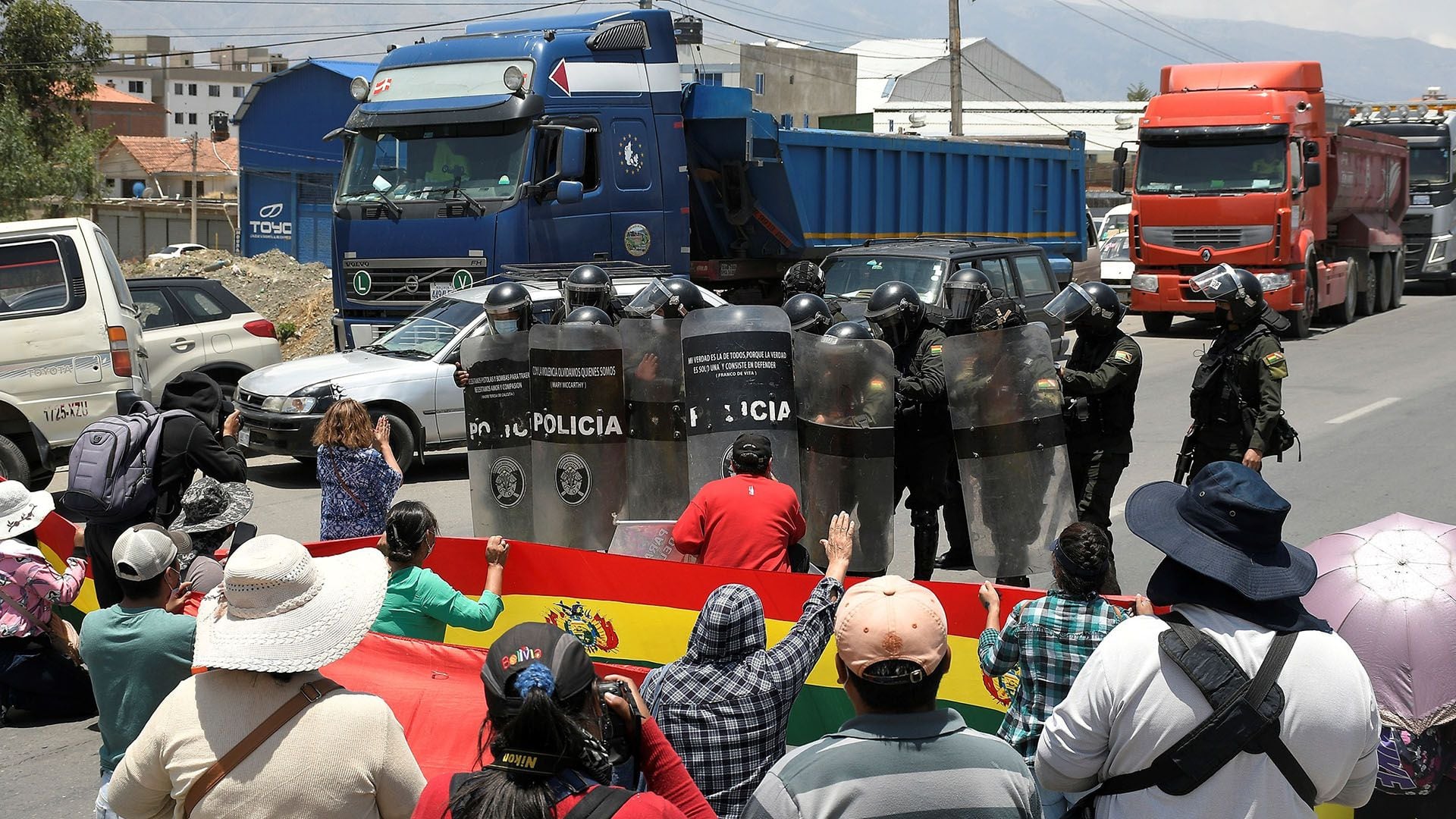
The UN Human Rights Committee expressed concern about cases of harassment and intimidation of human rights defenders and journalists in Bolivia, which included arbitrary arrests when they covered demonstrations between 2019 and 2021.
In its periodic report on the situation of human rights in Bolivia, which reviews events of the past five years, the committee of experts also expresses its concern that defamation, slander and insult continue to be criminalized, “with the consequent threat to freedom of expression”.
The committee received complaints of excessive and disproportionate use of force, sometimes with deadly consequences, in the context of the Bolivian post-election crisis of 2019, and calls for these events to be investigated without delay “in a thorough, independent and impartial manner.”
It is also concerned about the level of overcrowding in Bolivian prisons, which are at 148 per cent of their capacity, and that almost two thirds of persons deprived of liberty are in pre-trial detention.
The committee notes that the Service for the Prevention of Torture has collected more than 3,000 cases of torture and ill-treatment in the South American country between 2013 and 2021, mainly perpetrated by the police in prisons.

Although internal investigations have been opened to 70 police officers, the committee stresses that they have not been accurately informed of the outcome of these investigations.
Bolivia, on the other hand, has “low conviction rates in relation to cases of violence against women”, with at least 113 femicides committed since November 2020, according to the report published today.
The committee is concerned that the definition of crimes of rape and statutory rape is not adapted in Bolivian law to international standards, which “in practice implies impunity” in cases of sexual assault and child abuse.
On the other hand, UN experts welcome the fact that in 2014 the Bolivian Constitutional Court declared unconstitutional the requirement of judicial authorization to terminate a pregnancy when it is the result of rape, incest or statutory rape, but denounces that there are still obstacles to abortion.
The committee has received allegations in this regard from some 200 women prosecuted for the crime of abortion after being reported by health personnel.
Finally, the committee welcomes the creation in 2016 of a Truth Commission and the preparation of its final report on serious human rights violations perpetrated between 1964 and 1982, but states that 147 of the 1,714 victims recognized in connection with these events have not yet received any compensation.
The rest of the victims “have received only 20 per cent of the amounts allocated”, concludes the report of the United Nations committee.
(With information from EFE)
KEEP READING:
Últimas Noticias
Debanhi Escobar: they secured the motel where she was found lifeless in a cistern

The oldest person in the world died at the age of 119

Macabre find in CDMX: they left a body bagged and tied in a taxi
The eagles of America will face Manchester City in a duel of legends. Here are the details

Why is it good to bring dogs out to know the world when they are puppies




